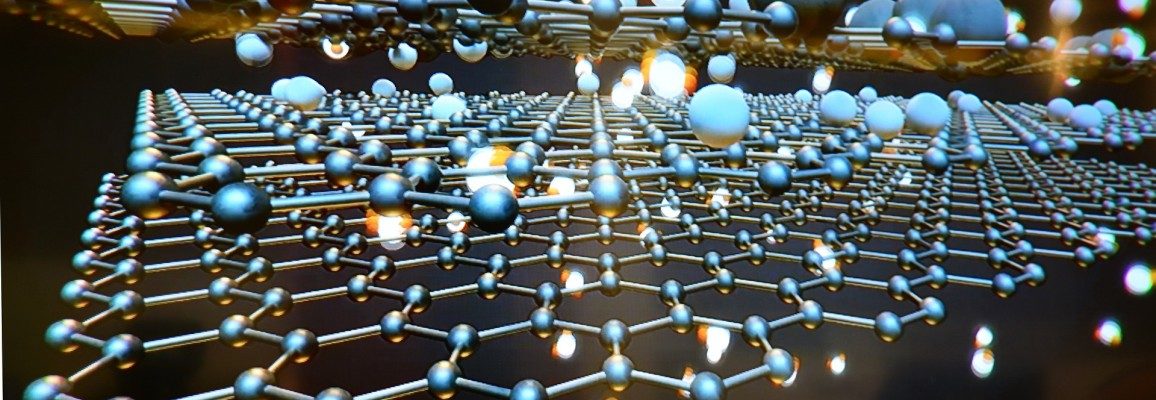Manchester: the global capital for graphene knowledge
Thought leadership 13th December 2023

Originally posted by James Baker on LinkedIn
Twenty years on from the isolation of graphene, The University of Manchester remains a world leader in 2D materials innovation, and increasingly our partnership work is global, as companies and institutions come to access knowledge sharing and expertise.
Firstly, our focus on sustainability has made us a go-to for countries looking to build climate resilience. We’ve partnered with Abu Dhabi’s Khalifa University The Center for Membranes and Advanced Water Technology (CMAT)- Khalifa University , to tackle the global challenges of water filtration and desalination, construction, energy storage, and lightweighting of materials. Similarly, many countries for example in Africa recognise their potential for hydrogen production but currently cannot store or transport it at the scale that useful for industry. We have the potential to offer the 2D material expertise they need to guide the development of transformational transportation or pipe systems, in turn helping the rebalancing of global dynamics around fuel.
Where graphene can improve the resilience and security of countries’ supply chains, it can lead to an international levelling-up. That’s another reason why industries chose to come to Manchester: because they recognise our role as the lead knowledge partner in the commercialisation of 2D materials. They can learn from our approach to building a rapidly expanding innovation network for graphene and 2D materials, because we have already proven graphene can deliver prosperity and progress at a local and national level.
In just five years, Graphene Engineering Innovation Centre (GEIC) has supported more than 50 spin outs and launched many new technologies, products and applications with industrial partners, who have all benefitted from our industry focused ‘fail fast, learn fast’ approach to innovation. They include a graphene-enhanced concrete, which reduces C02 emissions by up to 30% Concretene, a company taking waste plastics into construction materials Graphene Innovations Manchester, a revolutionary hydrogel for vertical farming AEH Innovative Hydrogel Ltd , and a process to extract lithium from water for use in the battery-making industry Watercycle Technologies . As a result, the GEIC had also created a significant impact on the local economy including new jobs, businesses and in gross added value to the Manchester region.
As a result, we are being followed and copied by partners across the globe, the iGEIC in India has mirrored our industry-led business model, and a project team from the University has recently travelled to Brazil, to help guide government policy and steer the development of the country’s Gerdau Graphene company.
Finally, The University of Manchester is home to the highest-density graphene research and innovation community in the world, comprising more than 350 experts spanning various disciplines, including physics, materials science, chemistry, neuroscience. This community includes academics, engineers and application experts, who bridge the gap between academia and the real-world needs of businesses, and innovation leaders, investment experts, IP advisors, plus operational and specialist technical staff.
This community, which is celebrated for fast tracking Technology Readiness Levels, centres around two bespoke buildings: the GEIC, and the £62m academic-led National Graphene Institute (NGI).
The NGI is the epicentre for pioneering 2D discovery, and hosts class 100 and class 1000 cleanrooms, creating the world’s largest academic space of its kind. It is home to Nobel Prize-winning Professor Sir Andre Geim, who first isolated graphene in 2004 with Professor Sir Kostya Novoselov and who continues to support a world-leading community of fundamental science researchers.
Graphene knowledge is now entering its third decade but Manchester – home of the Industrial Revolution – is destined to remain the home of the graphene revolution because our experts, our equipment and our approach to ecosystems provide the depth and breadth of knowledge that drives economies.

